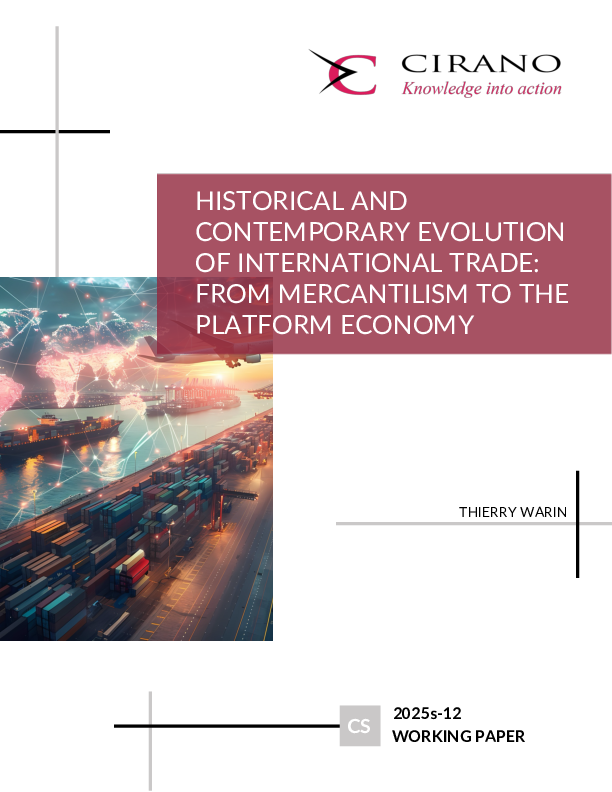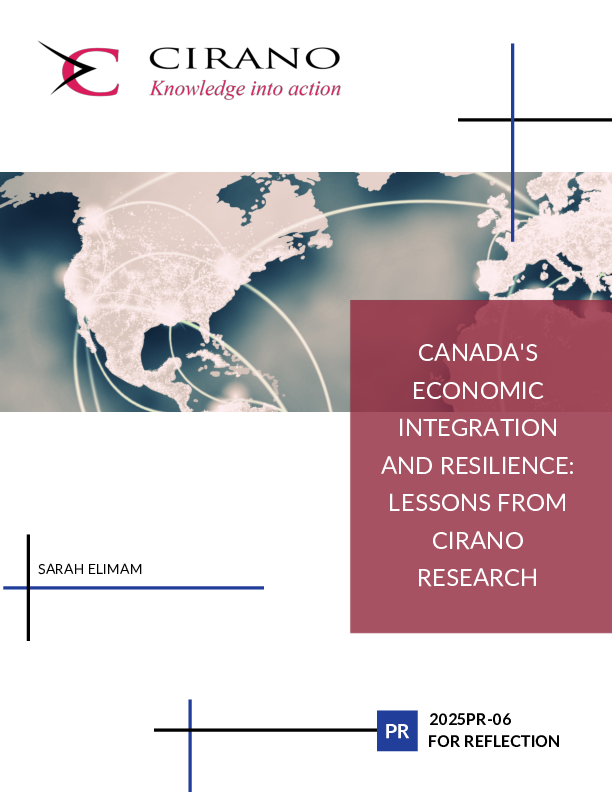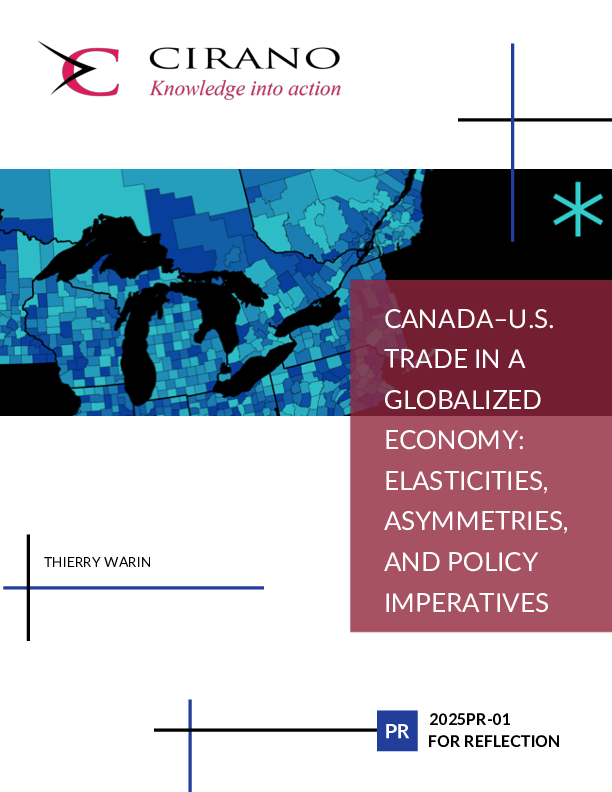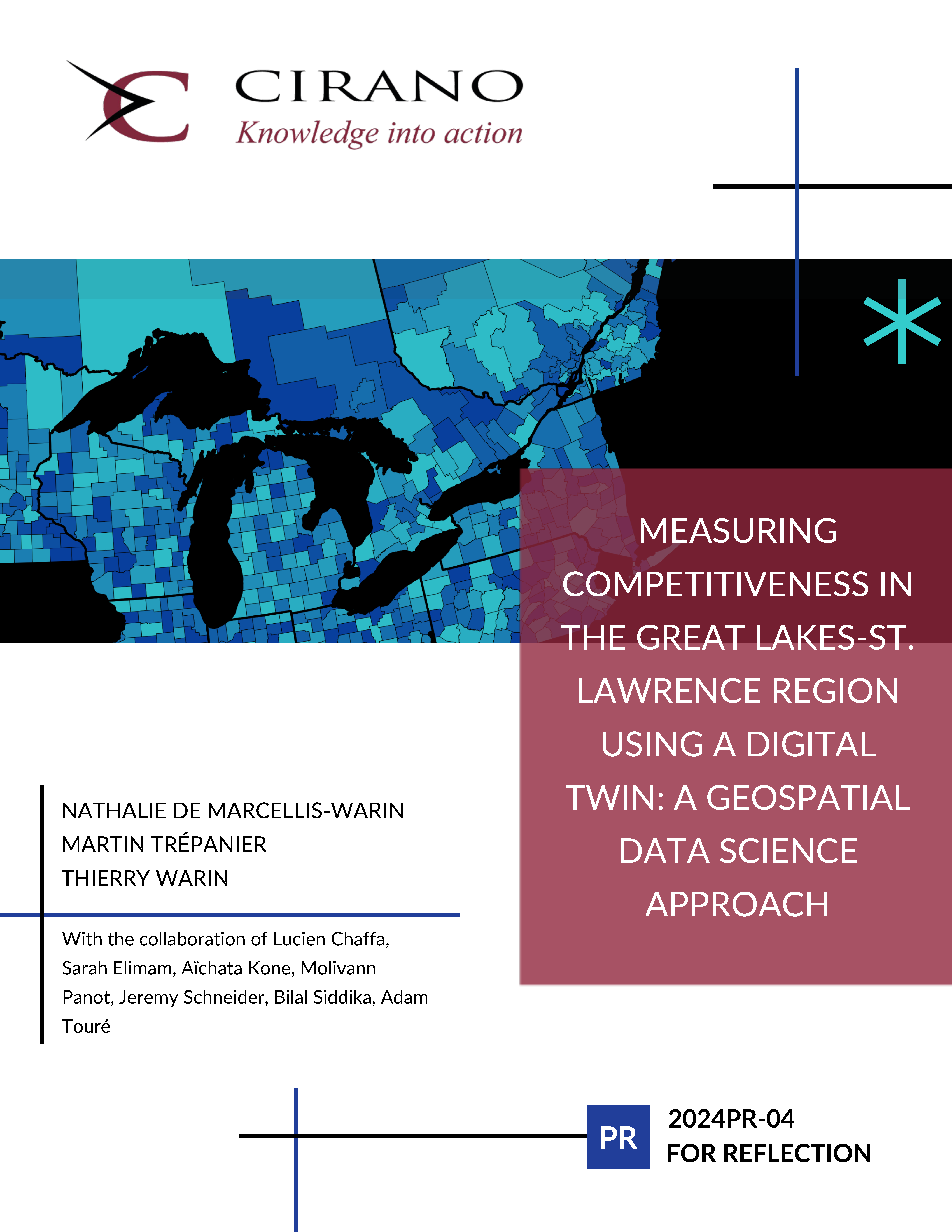Canada and its provinces and territories are largely integrated into global trade, finance and innovation networks. The objective of the World Economy theme is to shed light on the opportunities, challenges and risks associated with this international opening. Particular attention is paid to the feedback effects between the dynamics of businesses and the dynamics of territories in a context of globalisation, as well as their implications for public policies.
The theme is articulated around three strands. The first strand focuses on the international integration of regions and examines how the opportunities and challenges associated with globalisation (and de-globalisation) vary between regions. The main focus of this strand is therefore on the heterogeneity of regional dynamics and their influences on who wins and loses from trade integration, on the exposure of regions to foreign economic shocks, and on the economic policies that should be adopted in this context.
The second part deals with the internationalisation of firms and aims at a better understanding of the opportunities offered by international markets (in terms of buying intermediate goods and selling abroad) in order to identify the steps that allow successful international integration.
The last part deals with the field of economic complexity, i.e. how to measure the complexity of production in a globalised economy. Methodological tools are proposed, including data science tools and methods.






















